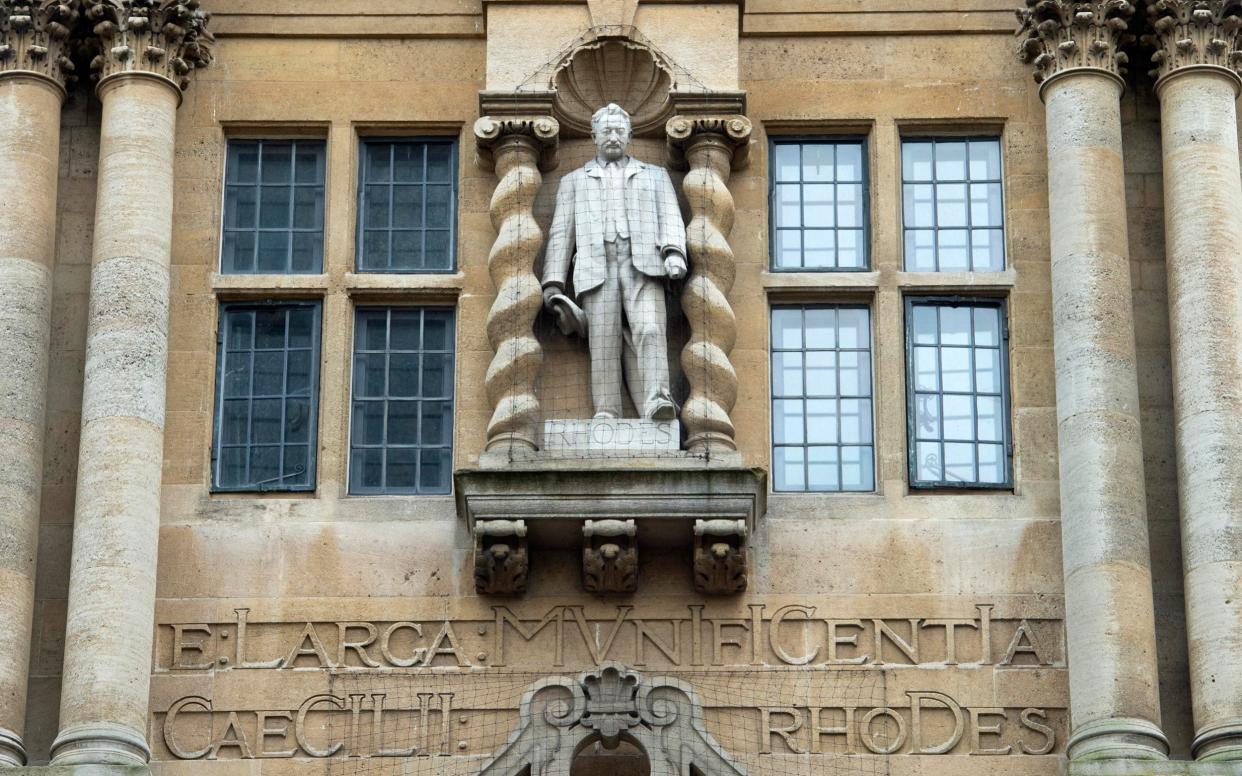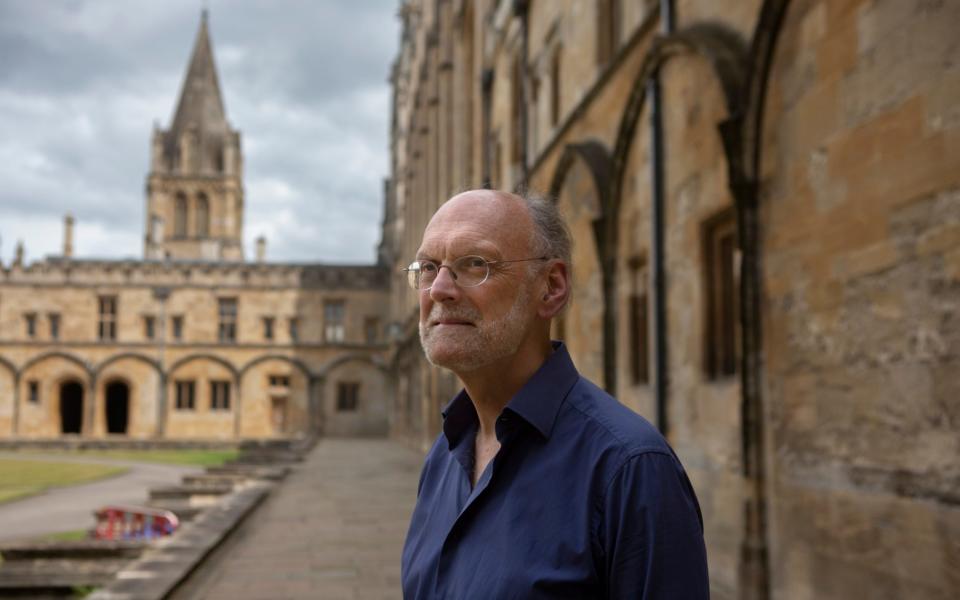Rhodes must not fall: academics in final push to stop removal of statue

A group of Oxford academics is to lobby the Government in a last-ditch attempt to stop the removal of the university's statue of Cecil Rhodes, if a commission set up to review the monument deems that it should be relocated.
Nigel Biggar, regius professor of moral and pastoral theology at Oxford, called for the statue to remain following Rhodes Must Fall protests associated with the Black Lives Matter movement.
He told The Telegraph that a "handful" of academics shared his concerns, but had not joined him in speaking out due to fear of public retribution.
"There are a number of colleagues in Oxford concerned," he said. "We've been conferring about what might be done. I'm aware of colleagues whose opinions are basically my own, but they have to tread carefully because views like theirs are not popular."
The group's hopes were raised last month when Robert Jenrick, the Communities Secretary, announced legal protections for statues based on a "retain and explain" principle. Writing in The Telegraph, Mr Jenrick complained about "woke worthies" trying to "erase" history by removing statues.

Under the new regulations, if the government-funded body Historic England objects to a council intending to green-light a statue's removal, the Communities Secretary could veto it.
Prof Biggar said that lobbying by him and his colleagues to protect the statue from removal would likely be directed to ministers such as Mr Jenrick.
"A wide variety of people have written to the commission; lots of people from across the political spectrum, to urge them not to do this," he said.
"It's quite possible that all sorts of people outside Oxford, prominent people, would start to rattle Oriel's cage."
The statue at Oxford's Oriel College has become a symbol of division, with Rhodes Must Fall protestors demanding its removal because Rhodes was in their view a colonialist racist.
Read more: Daniel Hannan: I'm certain that Rhodes will fall. This is why
Oriel College set up an independent commission to review Rhodes' history and advise the college's governing body, which wants the statue moved. The Sunday Times reported that the commission will soon announce how the statue could be relocated this summer, and putting it in a museum was a possibility.
A spokesman for the commission said its report was expected in early spring, adding: "The commission has sought and received a large volume of submissions from a wide range of stakeholders, with its work still ongoing."
Nailah-Amandla James, a Rhodes Must Fall Oxford campaign organiser, said Rhodes was often "described as a businessman, but not the violent colonialist he truly was. So much of the history of the British Empire is brushed over and ignored."
However, Prof Biggar said: "He was an imperialist, but British colonialism was not essentially racist, wasn't essentially exploitative, and wasn't essentially atrocious. So the fact that Rhodes was a supporter of the British Empire as a modernising force for good doesn't damn him."
CORRECTION: An earlier version of this article incorrectly stated that Cecil Rhodes owned slaves. In fact, slavery was banned in all British territories in Southern Africa in 1834, 19 years before Rhodes was born. We are happy to set the record straight

 Yahoo News
Yahoo News 
